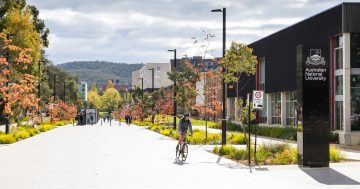
NTEU national president Dr Alison Barnes said the survey’s results revealed a systemic failure. Photo: NTEU.
Sexual harassment in tertiary workplaces has jumped more than 50 per cent, according to a new National Tertiary Education Union (NTEU) survey.
More than 2000 NTEU members participated in the union’s second national survey on sexual harassment, sexism and gender-based bias in higher education.
Almost one in three respondents reported personal experiences of sexual harassment. Most of them were women (38 per cent) allegedly targeted by co-workers (41 per cent).
“I was harassed and abused by a senior co-worker on the phone, in lifts and through malicious gossip,” one person said. “This was due to being a whistleblower [calling out his misconduct].”
Another respondent said: “I received regular phone calls – aggressive and sexually explicit – from an anonymous male student for the whole of my first semester lecturing.”
NTEU national president Dr Alison Barnes described the results as “alarming and deeply disappointing” and said they revealed a systemic failure.
“The higher education sector has clearly not made progress since our 2018 survey,” she said. “Higher education staff are being subjected to shocking levels of harassment and discrimination.”
Only 13 per cent of those who allegedly experienced harassment made a formal complaint. Of those who reported complaints, more than half said they were encouraged to drop them and 44 per cent said they faced negative consequences from their employers afterwards.
“It was made very clear to me that making a complaint was unwelcome, and that it would reflect badly on the school,” one person said.
Another said: “When I spoke to my colleagues about my experiences confidentially, I was told to ‘grin and bear it’ and not to rock the boat, otherwise things will turn out badly for me.”
Dr Barnes said the reason most respondents didn’t report sexual harassment was that institutional cultures ignored, minimised or targeted victims.
“That, combined with rampant insecure work, gender inequity and bias, has made universities unsafe workplaces for far too many people,” she said.
“As a result, perpetrators freely continue to commit acts of sexual harassment and sexual assault.”
The NTEU has called for all higher education employers to adopt a proactive approach that includes an effective complaint process that is victim-centric.
The union has also called for regulatory changes that include transparent annual reporting of sexual harassment and assault by tertiary education providers.
“The evidence shows a dire need for change,” Dr Barnes said. “It’s outrageous that so many of these survey results are actually worse than they were five years ago.
“Sexual harassment is a clear psychosocial risk. It must be treated as a work health and safety issue and employers must meet their legal obligations to ensure safety for their staff and students.”









